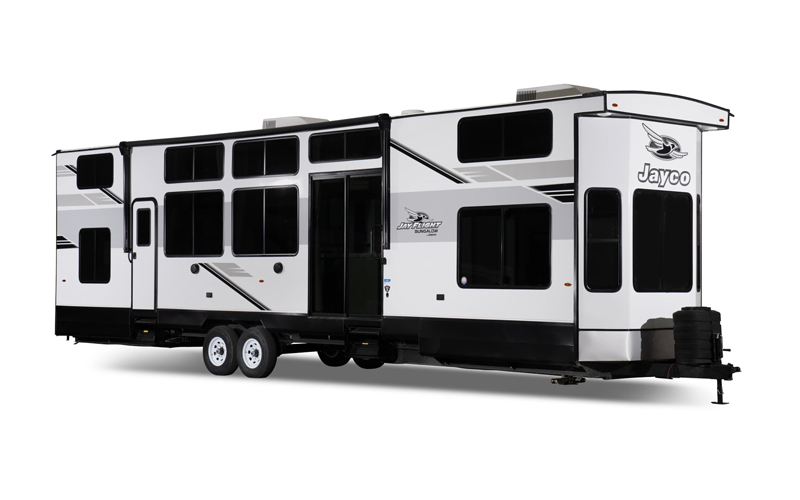Destination Trailers
Imagine a place that's all your own, season after season. More than an RV, it's a spacious, semi-permanent retreat designed for extended stays at your favorite campground, resort, or private lot. Unlike traditional travel trailers built for the road, these models are crafted to be your home base for making memories. With residential-style amenities, soaring ceilings, and even incredible loft spaces for the kids or guests, destination trailers offer a true home-like experience.
Loading...
Discover Models
scrollAnswers from our experts.
These units are best suited for long-term RV parks, private lots (where zoning allows) and seasonal campgrounds with full utility hookups.
Most rely on direct water and sewer connections rather than large holding tanks.
Yes, but they are designed for stationary use. Professional transport is usually required for relocation.

